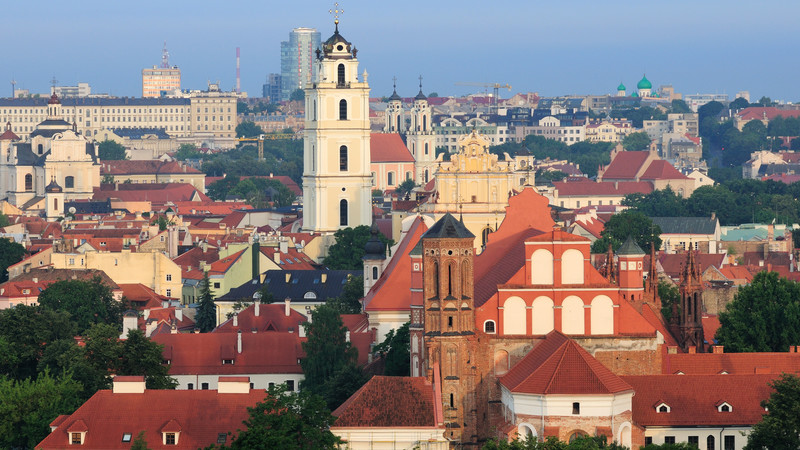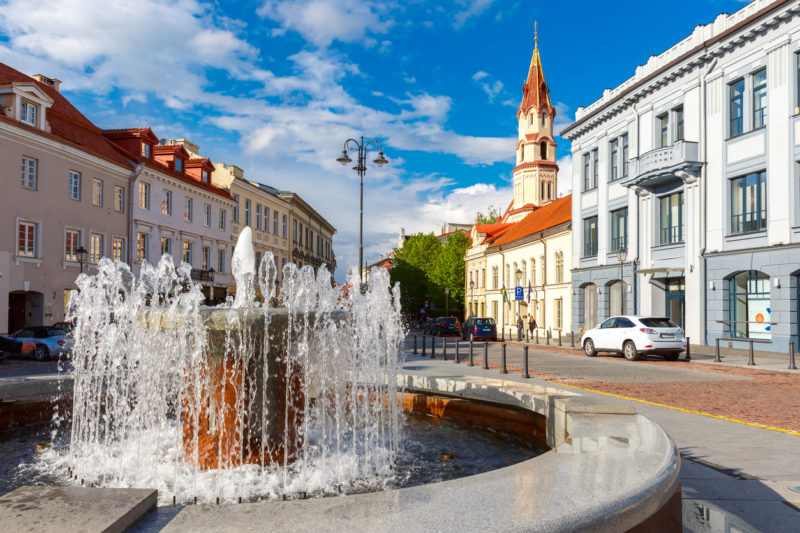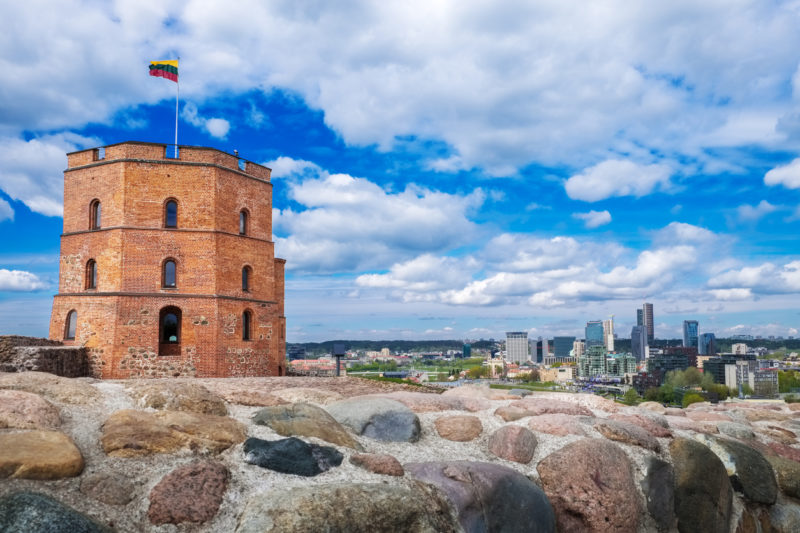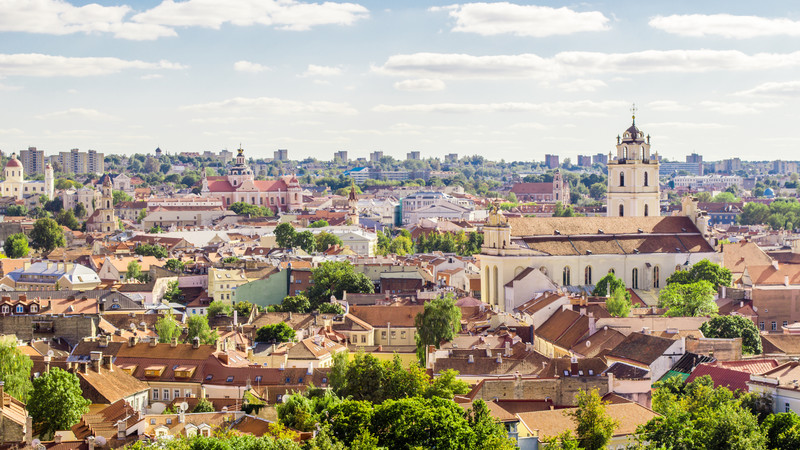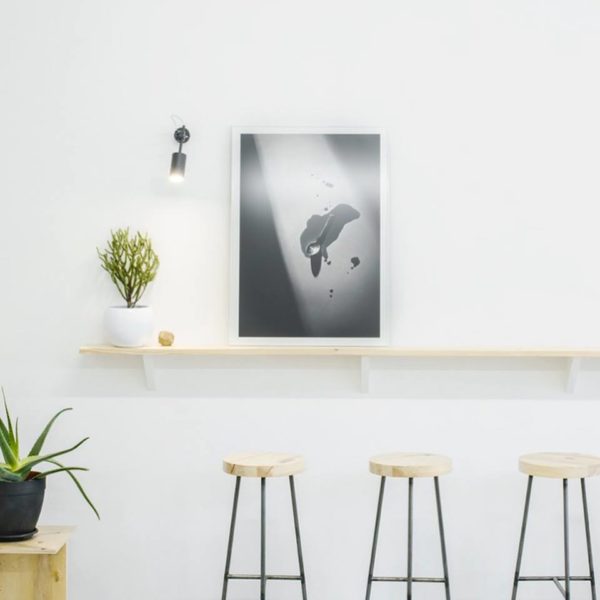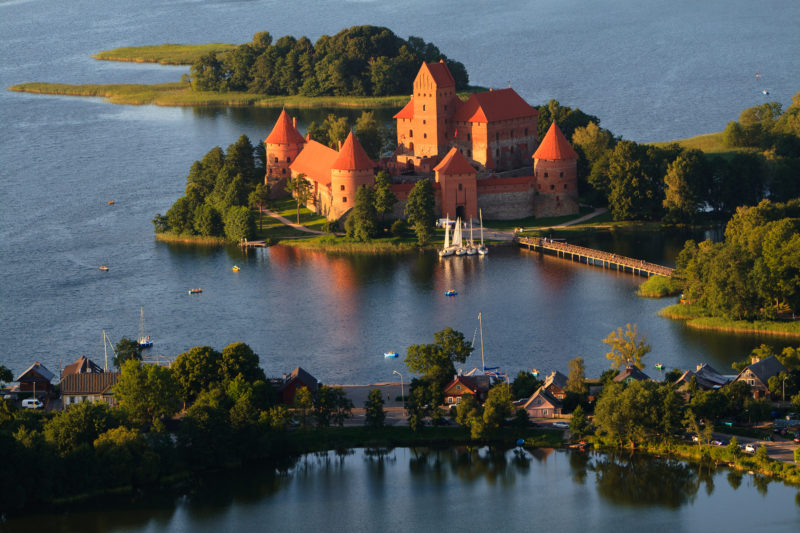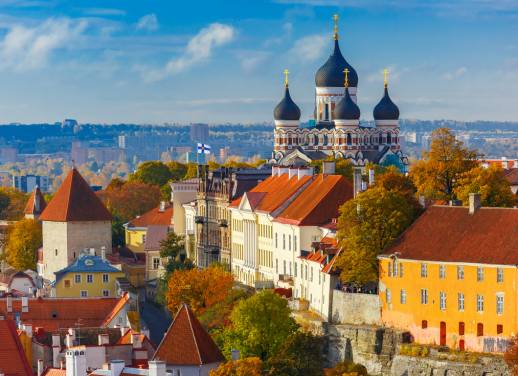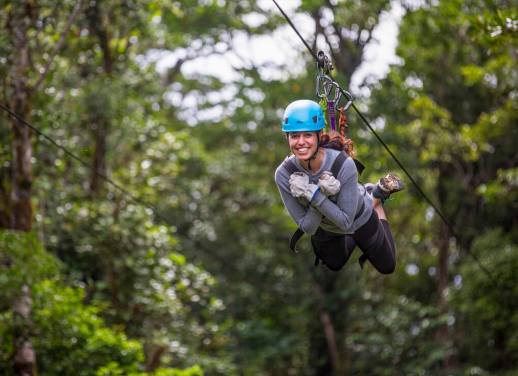I imagine that Vilnius is akin to what Berlin was like decades ago.
Here in Lithuania’s capital, youngsters have adopted their own impeccable brand of edgy cool. And unlike in Germany’s capital (its world-renowned cousin), the underground culture really is underground.
Combining this with a rich historical aesthetic setting in Soviet apartment blocks and the baroque architecture of its more distant past, this small city really packs a punch.
Here’s what you need to know about this up-and-coming European gem:
First, some context
Lithuania is a Baltic state located in northeastern Europe. Admittedly, the country is known, among other things, for its dreary weather that often holds a chill, but I recommend embracing it as the atmosphere out of which much of its culture is born. For an American like myself, it really explained some of the deadpan stoicism I encountered in the people, who are actually some of the nicest and most willing to help of any I’ve encountered, especially once you get them to open up a bit.
The history of Vilnius is rich and varied with medieval roots that have left striking architecture throughout. Churches and cathedrals in particular are colorful, splendorous, and ornate like something out of the film The Grand Budapest Hotel. Its Old Town is quaint with main streets paved in cobblestones and a skyline punctuated with the steeples of Orthodox churches in the main square surrounding the Palace of the Grand Dukes of Lithuania.
Perched on a steep hilltop nearby is Gediminas Castle. The main tower still remains, and climbing to the top is one of the most popular attractions for tourists. While I recommend walking in these areas, I wouldn’t suggest making these the primary points on your itinerary.
Instead, spend some time wandering the Old Town starting with Pilies Street and making your way outside of it toward the Vilnius Railway Station. Branch out from here, and get some of the post-Soviet flavor in addition to tranquil leafy side streets with third wave cafes and streetcars.
DISCOVER THE BALTICS ON THIS 15-DAY ADVENTURE WITH INTREPID
The must-sees
Some of the best avenues to hang out on are Vilniaus and Liejyklos. Locals congregate in this area, as there are many bars and restaurants including Opium nightclub. If you’re interested in getting a glimpse at the dynamic underground techno scene, try to plan your trip so that you’re in town for Opium’s monthly party known as Smala.
On a side street that intersects with Vilniaus and Liejyklos, you’ll also find Yucatan, a local favorite where tourists are essentially nonexistent. There is a great selection of mescals, excellent music that varies in style, and a consistently cool crowd.
Nearby, there is also the Contemporary Arts Center, the largest of its kind in the Baltic region. Built in 1968, the museum itself is designed in striking Soviet style. It’s probably one of my favorite buildings in the entire city for its odd proportions, intriguing geometry, and monochrome concrete exterior. Just around the corner is Vokiečių Street. This posh part of town is also replete with hip restaurants and health food shops. Be sure to catch the cherry blossoms in bloom outside Sugamour during the summer months as well. Inquire within for some of the city’s best gourmet pastries.
SUBSCRIBE TO INTREPID’S NEWSLETTER FOR TRAVEL TIPS, COMPETITIONS, GIVEAWAYS & MORE
Stop at Hales Turgas on a Saturday to grab some fresh produce and other goodies while experiencing a cross section of locals who are doing the same as part of their weekly shopping routines.
Also consider hanging out in a café as part of a leisurely morning. Some of my favorites include the centrally located Mint Vinetu in the Old Town, whose walls are lined with shelves packed with old books and records. Here, you can try the traditional kava coffee beverages made of acorns. Alternatively, stretch your legs and walk the mile or so to the more residential part of town where third wave coffee shops, Taste Map and Crooked Nose, await. With their clean lines and minimalistic interior design, you can catch a glimpse at the way the city is reinventing itself with renewed chicness.
If you’re looking for a bit more activity, check out Vingio Parkas, which is a wooded plateau set among a forest of ancient conifers. There are ample pathways here for skating, jogging, and cycling, which stretch across the front of an enormous semi-arched amphitheater that dates back to the 1980s. Here, concerts are still held and have been known to draw crowds in the hundreds of thousands. Making the trip up to Vingo Parkas in order to have a look at this impressive structure is worthwhile in itself.
READ MORE: 8 PLACES YOU DIDN’T KNOW YOU NEEDED TO SEE IN EUROPE
Food & drink
Many Lithuanian dishes are traditionally heavy and hearty, with staples including root vegetables and meats. Some popular meals include deep-fried bread served with garlic (kepta duona), cold borscht (saltibarsciai), potato pancakes, and hand pies filled with various combinations of meats, vegetables, cheese curds, or berries.
As a vegan, however, I didn’t get too stuck on these kinds of dishes and instead sought to find out what the city’s youth culture had to offer in the realm of gastronomy. Indeed, a lot of the new generation of Lithuanians are also celebrating international cuisine, whether through numerous burger joints or through Bruisly, an Asian fusion restaurant inspired by the life of Bruce Lee. Two of my favorite vegan spots in the city are located right next door to each other: Vegafe and Botanique. The former serves a seasonal menu based on Ayurvedic tradtions, and the latter offers a variety of raw food items and phenomenal desserts.
In order to gain a sense of some of the traditionalism, even the youngsters seem to be carrying on some of Lithuanian’s longstanding love for drinking.
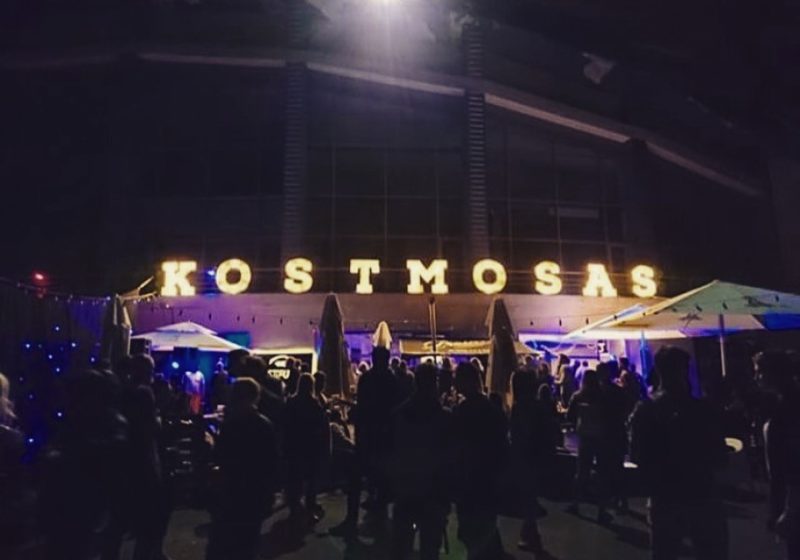 Befriend some locals at places like Salionas, the former covert salon where intellectuals and artists met under Soviet repression. Or venture to industrial-chic Perionas, a favorite of local youth perched just on the edge of the tracks at the city’s train station.
Befriend some locals at places like Salionas, the former covert salon where intellectuals and artists met under Soviet repression. Or venture to industrial-chic Perionas, a favorite of local youth perched just on the edge of the tracks at the city’s train station.
READY TO WORK OFF ALL THE ALCOHOL? CHECK OUT INTREPID’S 11-DAY ‘CYCLE THE BALTICS’ TRIP
Day trip-worthy surrounds
In addition to the breathtaking Vingio Parkas, one of the most widely recommended spots for a day trip is Trakai, a historical site where a 14th century castle fortress is situated on an island at the center of Lake Galvé.
Get here by heading west on an hour-long train ride. On the grounds, it’s possible to learn a bit about Lithuania’s medieval past through its archaeology and the castle structure itself. Step back in time and wander throughout the charming natural scenery, as the banks of the lake provide an idyllic setting for a picnic when the weather permits.
There you have it. From baroque medieval times to the stark history of Soviet occupation to a thriving underground scene, Vilnius may be small, but it has many elements worth exploring.
It is a place where seemingly-unassuming side streets yield glimpses of Soviet times. Where techno clubs are frequented by pouty youth dressed in layers of flowing black. And where emerging vegan eateries and pristine forests of towering trees sit side by side, all in one compelling locale.
I was infatuated and inspired by what I experienced there.
Ready to explore this beautiful, underrated city? Check out Intrepid’s range of small group adventures in Lithuania.
—
(Image credits from top to bottom: Intrepid Travel, iStock/KavalenkavaVolha, iStock/ChamilleWhite, Intrepid Travel, Crooked Nose Facebook Page, Lily Cichanowicz, iStock/vikau.)

